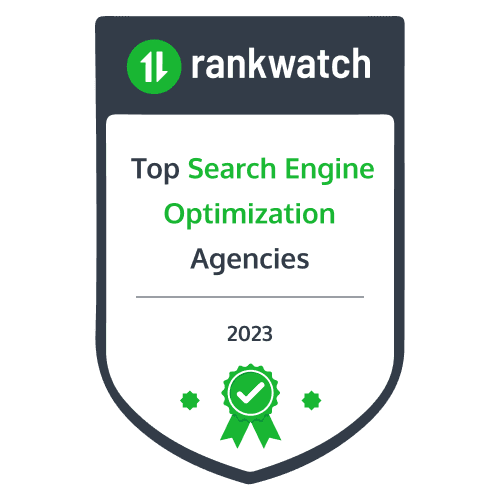

You’ve probably heard the saying, “Think global, act local.” This adage is more relevant than ever in today’s digital world, especially regarding Local SEO for a small business. As a small business owner, you might wonder how to compete with big brands and global corporations. The answer lies in local SEO. This powerful strategy allows you to tap into your local market, build a loyal customer base, and ultimately expand your business.
Local SEO is optimizing your website and online presence to rank higher in search engine results for location-specific keywords. It’s all about making it easier for potential customers in your target area to find you online. By honing in on your local audience, you can establish a strong foundation for your business and set the stage for future growth.
But what exactly makes local SEO so effective? How can you leverage it to take your small business to the next level? In this comprehensive guide, we’ll dive into the benefits of local SEO, critical components of a successful strategy, and real-world examples of businesses that have harnessed its power. Let’s get started!
The Benefits of Local SEO for Small Business Expansion
Increased Visibility
One of the primary benefits of local SEO is increased visibility in search engine results pages (SERPs). When potential customers search for products or services in your area, you want your business to be at the top. Local SEO helps you achieve this by targeting location-specific keywords and optimizing your online presence for your target area.
Higher Conversion Rates
Local SEO doesn’t just drive more traffic to your website and leads to higher conversion rates because local searchers are often more motivated and ready to purchase. By focusing on your local audience, you’re attracting customers actively seeking your products or services, making them more likely to convert.
Build a Loyal Customer Base
Focusing on local SEO allows you to connect with your community and build a loyal customer base. People tend to trust and support local businesses, so optimizing your online presence for your target area reinforces your status as a trusted, reliable business which can lead to repeat customers, referrals, and positive reviews – all of which contribute to the long-term success of your small business.
Key Components of a Successful Local SEO Strategy
Keyword Research and Targeting
Effective keyword research and targeting are the foundation of any successful local SEO strategy. You need to understand what your potential customers are searching for and tailor your content accordingly. It involves identifying location-specific keywords and industry-specific terms and incorporating them into your website’s content, meta tags, and headings.
On-Page SEO Optimization
On-page SEO refers to optimizing individual web pages to rank higher in search results, including appropriately using title tags, meta descriptions, header tags, and keyword-rich content. Additionally, you should ensure your website’s mobile-friendly design, as more and more people use their smartphones to conduct local searches.
Local Business Listings and Citations
Creating and managing local business listings and citations is essential to local SEO. This involves claiming and optimizing your Google My Business listing and ensuring that your business information is consistent and accurate across various online directories and review sites.
Optimizing Your Website for Local SEO


Mobile-Friendly Design
As mentioned, a mobile-friendly website design is crucial for local SEO success. With most local searches now being conducted on mobile devices, ensuring your website is easy to navigate, and loads quickly on smartphones and tablets is essential. This improves the user experience and signals to search engines that your site is relevant and valuable to searchers.
Local Schema Markup
Schema markup is a type of structured data that helps search engines understand the content of your website. By implementing local schema markup on your site, you can provide additional contexts about your business, such as its location, hours of operation, and contact information. This, in turn, can improve your visibility in local search results and enhance the overall user experience.
Optimized Meta Tags and Headings
Optimizing your website’s meta tags and headings with local keywords is another important aspect of local SEO. This includes crafting compelling title tags and meta descriptions that accurately describe your business and its offerings, as well as incorporating local keywords in your header tags to signal the relevance of your content to search engines.
Creating and Managing Local Business Listings
Google My Business
Claiming and optimizing your Google My Business listing is critical in any local SEO strategy. This free tool allows you to manage your online presence across various Google platforms, such as Maps and Search. Ensure that your business information is accurate and up-to-date. Take advantage of features like posts, photos, and customer reviews to showcase your offerings and engage with your audience.
Online Directories and Review Sites
In addition to Google My Business, managing your presence on other online directories and review sites, such as Yelp, Foursquare, and TripAdvisor, is essential. Consistency is key – ensure your business information, such as your name, address, and phone number, is accurate and consistent across all platforms.
Responding to Reviews
Engaging with your customers by responding to reviews is another crucial aspect of managing local business listings. This helps you build trust and rapport with your audience and signals to search engines that you’re an active, responsive business. Make sure to address both positive and negative feedback professionally and on time.
Leveraging Local Content Marketing for SEO
Blogging and Local News
Creating high-quality, locally focused content like writing blog posts about local events, news, or industry trends and creating informative guides or resources for your target audience. By providing valuable, relevant content, you can establish yourself as a local authority and attract more organic traffic to your website.
Social Media


Social media platforms like Facebook, Instagram, and Twitter offer another avenue for promoting local content and engaging with your audience. Share your blog posts, photos, and updates on your social channels, and encourage your followers to like, share, and comment to increase your visibility and drive more traffic to your website.
Local Partnerships and Collaborations
Partnering with other local businesses or organizations can also help you leverage local content marketing for SEO which involves co-hosting events, creating joint promotional campaigns, or even guest blogging on each other’s websites. Collaborating with others in your community can expand your reach and build valuable relationships.
Building Local Backlinks and Citations
Local Directories
One way to build local backlinks and citations is by submitting your business information to local directories to improve your online visibility and provides valuable backlinks that can boost your website’s authority in the eyes of search engines.
Guest Blogging
As mentioned earlier, guest blogging on other local websites can be an effective way to build local backlinks. By providing high-quality content for other sites in your niche or community, you can establish yourself as a thought leader, generate valuable backlinks, and drive more traffic to your website.
Sponsorships and Community Involvement
Another approach to building local backlinks and citations is through sponsorships and community involvement. By supporting local events, charities, or initiatives, you can gain exposure for your business and earn backlinks from local news outlets, event websites, and more.
Tracking and Measuring Local SEO Success
Rankings and Traffic
To gauge the success of your local SEO efforts, tracking your website’s rankings and traffic is essential. Keep an eye on your position in local search results and overall organic traffic to determine if your strategies are practical and identify areas for improvement.
Conversions and Sales
Of course, the ultimate goal of local SEO is to drive more conversions and sales for your business. By tracking metrics like conversion rate, average order value, and revenue, you can assess the impact of your local SEO efforts on your bottom line.
Customer Reviews and Engagement


Lastly, monitor customer reviews and engagement on local business listings and social media platforms. It can provide valuable insights into your target audience’s needs and preferences and help you identify opportunities to improve your offerings and customer experience.
Conclusion: The Future of Local SEO and Small Business Growth


In conclusion, local SEO is a powerful tool for small businesses looking to expand and grow. By targeting location-specific keywords, optimizing your website and online presence, and building relationships with your local community, you can establish a strong foundation for your business and set the stage for future growth. As the world becomes increasingly digital and localized, the importance of local SEO will only continue to grow. Investing in this crucial strategy allows you to position your small business for long-term success and compete with even the largest corporations. So, think local, grow global – and harness the power of local SEO to take your small business to the next level.
Contact Markitome today to learn how we can help you optimize your online presence and expand your reach.



We hope you’re enjoying reading our blogs… Don’t forget to secure your browsing experience with Nord VPN. Click the banner below to learn more
More To Explore
Redefining Digital Marketing in 2024: 10 Game-Changing Trends
In the ever-evolving world of digital marketing, staying ahead of the curve is essential. As we approach 2024, it’s crucial to be aware of the
SEO Mania-7 Proven Strategies for Explosive SEO Growth in 2024
Understanding the Importance of SEO in 2024 In the ever-evolving world of SEO, staying ahead of the curve is crucial to your online success. As